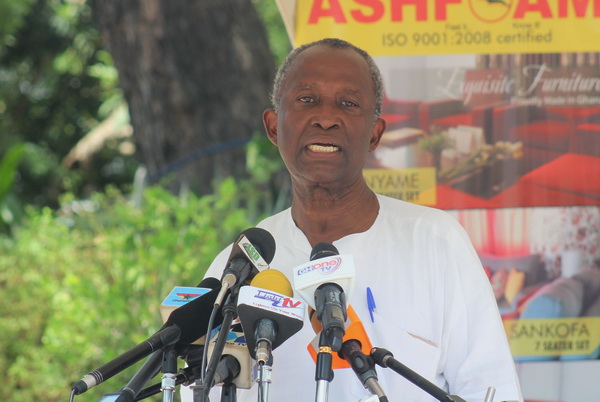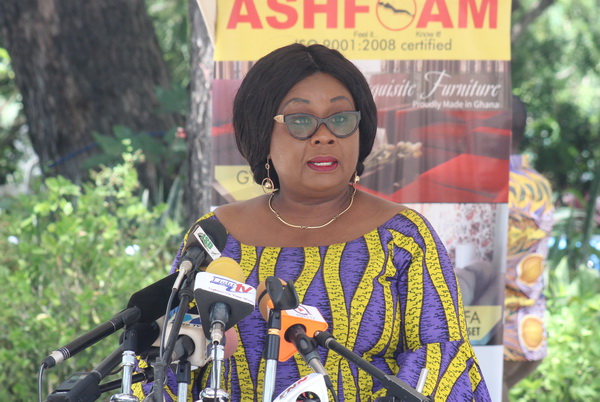
‘Journalists’ lack of integrity threat to media independence’
The acting Vice-Chancellor of the Catholic University College, Dr Anthony Bonnah Koomson, has identified the lack of personal and professional integrity on the part of journalists as the greatest threat to the independence of the mass media in Ghana.
He noted that while there were a number of impediments on the way of journalists, members of the profession who did not have integrity would always succumb to threats, favours and intimidation, a situation that often undermined their independence.
Advertisement
“A lot of the time, journalists get invitation to cover assignments and they do not question the motive behind those invitations. Sometimes we consider the favour we will get from a pastor or politician to do our work. We have to be critical, and it takes personal integrity,” he stated.
Accept criticism
Speaking at a symposium in Accra on Thursday as a prelude to the commemoration of World Press Freedom Day, Dr Koomson, a former lecturer at the School of Communication Studies, University of Ghana, said another aspect of personal integrity was for journalists to learn to accept criticism, “since we are not perfect human beings and we may go into excesses”.
“A journalist who does not have the humility to accept criticism endangers integrity. We must be the first to admit our errors and be gracious in accepting the consequences of our actions which may cause us queries from our editors or legal suits,” he stated.
The event, held on the theme: “Assessing press freedom in Ghana’s search for democratic rule: Lessons learned”, was organised by the Ghana Journalists Association (GJA) and the National Media Commission (NMC).
It formed part of activities preceding the celebration of this year’s World Press Freedom Day, to be hosted in Ghana from May 1 to May 4, 2018.
Professional ethics
Dr Koomson said journalists were taught at the various media schools to uphold the ethics of the profession, which was all about integrity that took years of practice to earn.
However, he said, the tendency of reporters to accept gifts and favours, commonly termed “soli”, had undermined the integrity of their independence over the years.
“If we rely on ‘soli’ to do our work, those who are unable to pay ‘soli’ will not be heard and yet they may have good stories to tell,” he said.
He added that ownership of the media also tended to influence the independence of journalists because they had to work in line with the perspectives of their employers.
“If you take a survey of the media in Ghana now, the average person will tell you that the media are partisan, which means they are sympathetic to some political parties and this is a threat to their independence,” he added.
Other threats
Dr Koomson, who is also a former Editor of the Catholic Standard, identified advertising sources as another threat to the independence of the country’s media.
According to him, most media outlets critically needed 70 per cent of their revenue from advertising.
In other words, he said, without advertising, no media house could survive unless it was subvented by the government, for which reason they had to kowtow to the expectations of advertisers.
On the part of the government, he noted that while the government might not muzzle the media, as it did in the past, a media outlet that was unfriendly to the government could face hostility from the government.
“If a media house is not friendly to the government, it may be denied some information or may not be invited to certain functions or given certain leads,” he said, and also identified law suits as another major threat to the independence of the media in Ghana.

Free but not independent
The Chairman of the NMC, Nana Kwasi Gyan Appenteng, in his contribution, said the media in Ghana now enjoyed freedom but lacked independence.
“Too many journalists are in hawk to other interests, either singing the tunes of political masters or their business masters,” he stated.

Peer review
For her part, the Editor of the Junior Graphic, Mrs Mavis Kitcher, suggested that a peer review system must be instituted among the inky fraternity to allow journalists to criticise one another as part of measures to improve standards in the profession.
She also called on owners of media outlets not only to concentrate on developing journalistic standards and policy guidelines to make reporters improve their output but also offer continuous training to upgrade their knowledge and skills.
Mrs Kitcher, who expressed reservation at the proliferation of media schools in the country, nonetheless urged them to help raise the image of the profession by offering standard training to their students.
A veteran journalist, Mr Cameron Duodo, advised journalists to not only be factual but also consistently stay truthful in all their reportage to enable them to build a reputable image for themselves.




